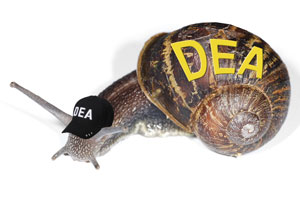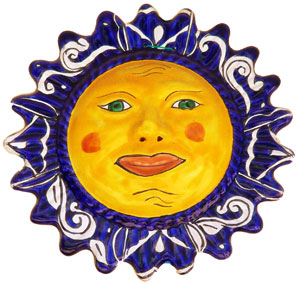The weather is warming, and chile pepper gardeners all over are plotting  their plantings for the season. In the April issue of Burn! Magazine, we introduced Cap Farmer, a former marijuana grower who has switched to chiles to prevent his house and property from being seized by the Feds.
their plantings for the season. In the April issue of Burn! Magazine, we introduced Cap Farmer, a former marijuana grower who has switched to chiles to prevent his house and property from being seized by the Feds.
This is the first installment of his chile gardening wisdom. We hear he learned everything he knows from Dave DeWitt! For more of the real truth about chile growing, buy The Complete Chile Pepper Book.
 You Can Plan on a Great Garden This Year!
You Can Plan on a Great Garden This Year!
The Myth: You’ve read all the books, blogs, and sites about chile gardening and you know this year you’ll have a record chile pod yield.
The Truth: Dude, it’s not that easy. There are dark forces at work far beyond your control, like when my brother Rick’s chile field was totally trashed by five inches of rain in two hours. Another time, my own beloved home garden was wiped out by superfreak 70 mph winds. Talk about a blow job! Then there’s hail, tornados, early frost, curly top virus, root rot, marauding rabbits, DEA agents dressed up like snails, slugs, hornworms, thrips, and even chile thieves. What you need most is luck!
Fertilize for More Pods!
The Myth: Since corn grows better when you add lots of nitrogen, so will chiles.
The Truth: Do you have recipes for lots of chile pepper leaves? Have you figured out how to smoke them for a pleasant, reality-altering buzz? Because that’s what you’ll get with a lot of nitrogen: leaves and no pods…which is sort of like stems but no buds. Use only aged compost as a fertilizer. Old shit is still good shit, as they say.
Cure Chile Plant Diseases Instantly!
The Myth: Using simple organic gardening techniques will prevent or cure most chile pepper diseases.
The Truth: I remember the time my friend and I both had colds and we tried to cure ourselves in a Jamaican Steam Bath. That worked about as well as organic disease-control. Most of the crappy stuff that makes your chile plants sick is transmitted by vectors like white fly and leafhoppers that are seriously gnarly. And once your plants get a viral disease like curly top, they are doomed to die. You wouldn’t think that something with such a cute name could kill your plants, but there you are.
Fun in the Full Sun—All Day Long!
The Myth: All chiles grow best in full sun.
The Truth: Just like albino redheads, right? Some chiles do grow best in full sun, but it all depends on latitude and altitude. The further north you live, and at lower altitudes, full sun is fine. Now, I’m usually all for being as high as possible. But if you go south and higher in elevation, full sun with all its ultraviolet light can burn the crap out of your plants, causing sunscald on the pods and leaf drop on more sensitive varieties like habaneros, which need some shading. And if you’ve ever sunburned your pod, dude, you know it’s a mistake you only make once.
Trim the Flowers and Produce More Pods!
The Myth: Keeping the flowers trimmed back will increase the yield of your plants.
The Truth: So, if this were true, that means you could have a world full of virgins and we’d still have a population explosion. Man, you need every flower your plants can produce because of possible flower drop when the weather gets hot. Otherwise you’ll have no chile pods, no virgins to deflower, nada.
Lois Manno
Latest posts by Lois Manno (see all)
- DIY Whole Wheat Flour Tortillas - 07/24/2018
- Green Chile Enchiladas - 07/23/2018
- SW Chocolate & Coffee Fest: A Caffeine Fiend’s Dream - 03/26/2013









Comments
I’ve just discovered your site and I love it! And YES, including the sense of humor. I too have had pepper plants ruined by prevailing winds and by additions of fertilizer.
I no longer use fertilizer on my pepper plants- or insecticides. I just start my pepper seeds off in well nourished soil and rely on nature to help with the insects. In my case the mocking bird! Aside from loving the hot pequin peppers, they also love the pesky little insects who love the pepper leaves. So it’s all good!
Regards,
Alfred